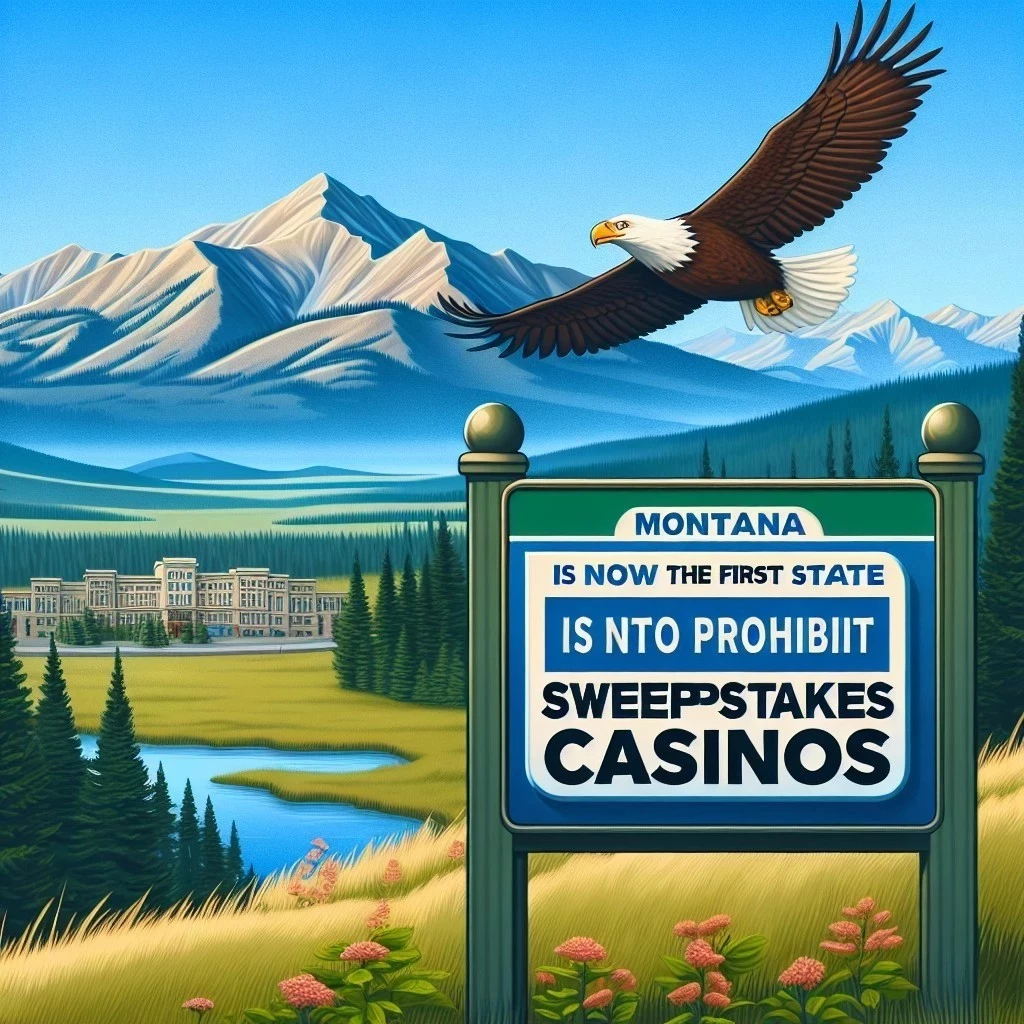Discover why Montana’s bold move to ban sweepstakes casinos is shaking up the gaming industry and what it means for the future of gambling laws in the US.
Montana Becomes First State to Ban Sweepstakes Casinos
Wellcome Offer:
200% up to $2,000
+ 100 Free Spins
The winnings from your free spins will be credited as bonus funds. Exclusively available for new players with fair wagering requirements.
Wellcome Offer:
250% Bonus up to $5,000
+ 100 Free Spins
Claim your bonus and spin your way to big wins! Minimum deposit of $20 required. Wagering requirements apply. Bonus valid for 30 days.
Get up to:
100% up to $1,000
+ 300 Free Spins
You need to deposit at least $25 to be eligible for this bonus. The maximum amount of money you can withdraw from this bonus is limited to $20,000 or 10-times.
Welcome Package:
500% up to $5,000
+ 250% on your 2nd and 3rd deposits
This welcome package rewards new players across their first three deposits. A minimum deposit of $25 applies, with a wagering requirement of 60x before withdrawals.
Wellcome Offer:
250% up to $1,500
+ 100 free spins
Whether you prefer generous deposit bonuses or a bundle of free spins, Cafe Casino’s welcome offer has everything you need to enhance your gaming adventure.
Wellcome Offer:
500% bonus up to $7,500
+ 150 free spins
If you're after big deposit bonuses or a load of free spins, Ducky Luck Casino’s welcome package sets the stage for an exciting gaming adventure.
Welcome Offer:
200% up to $2,000
+ 100 Free Spins
This welcome package combines a deposit match with free spins, giving new players a powerful way to kick off their VoltageBet journey.
Wellcome Offer:
200% up to $1,000
+ 30 free spins
Lovers of slot games and those looking to boost their deposit will find Slots LV Casino’s welcome offer the perfect way to jumpstart their gaming journey.
Wellcome Offer:
200% up to $500
+ Free Spins
Terms typically include standard wagering requirements and a limited validity period. Offers vary by deposit method and player eligibility.
Wellcome Offer:
250% up to $1,500
+ 50 Free Spins
All winnings from free spins are credited as bonus funds, with fair wagering requirements. Exclusive to new players.
In a landmark decision, Montana has become the first state in the United States to ban sweepstakes casinos, a move that has significant implications for the gaming industry and public policy across the nation․
The Legislation Behind the Ban
The recent legislation passed by the Montana state legislature aims to prohibit the operation of sweepstakes casinos, which have been proliferating under a legal gray area in many states․ This prohibition is part of a wider effort to regulate and control gambling activities within the state․
Understanding the Legal Framework
The new state law specifically targets businesses that offer sweepstakes games disguised as legitimate gambling activities․ These games often capitalize on loopholes within existing regulation, allowing them to function without being classified as traditional casinos․ By closing these loopholes, Montana hopes to create a more consistent legal framework for all gambling-related activities․
Enforcement and Compliance
Enforcement of this new law will fall to state authorities, who are tasked with ensuring that gaming establishments comply with the prohibition․ This will involve monitoring and potentially shutting down businesses that continue to operate sweepstakes games under the guise of legitimate casinos․

Impact on the Gaming Industry
The ban on sweepstakes casinos is expected to have a profound impact on the gaming industry in Montana․ While traditional casinos and other forms of legal gambling remain unaffected, the removal of sweepstakes games could lead to shifts in how the industry operates within the state․
Reaction from Stakeholders
Reactions to the ban have been mixed․ Some industry stakeholders express concern over the potential economic impact, while others support the move as a necessary step toward maintaining ethical standards within the gaming sector․ The decision is likely to influence public policy debates in other states considering similar measures․
Public Policy Implications
As the first state to implement such a ban, Montana sets a precedent that could shape future discussions on gambling regulation in the United States․ Policymakers and regulators will be closely watching the outcomes of Montana’s decision as they evaluate the effectiveness of such prohibitions in curbing illegal or unethical gambling practices․
Overall, Montana’s move to ban sweepstakes casinos marks a significant development in the ongoing conversation surrounding gambling regulation and enforcement in the United States․ Whether this decision will lead to broader changes nationwide remains to be seen, but it undoubtedly represents a critical moment in the evolution of state-level gaming laws․

























